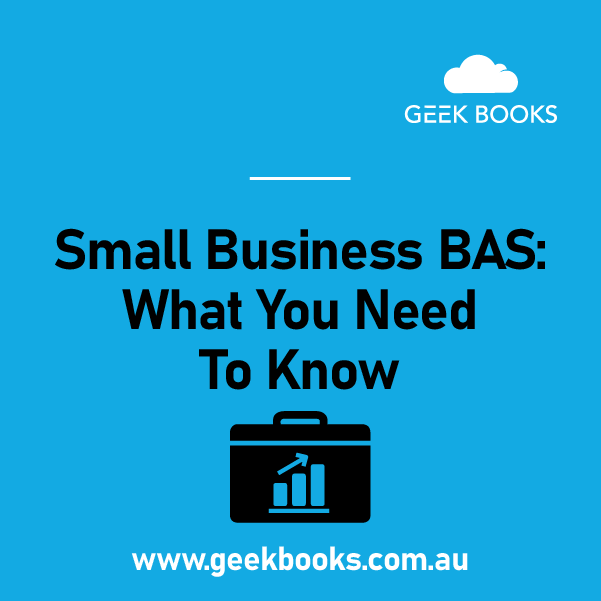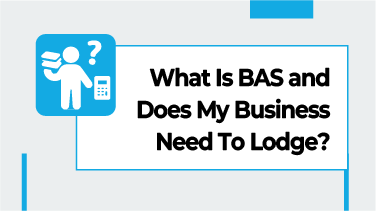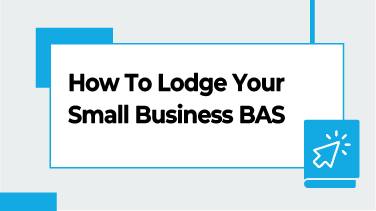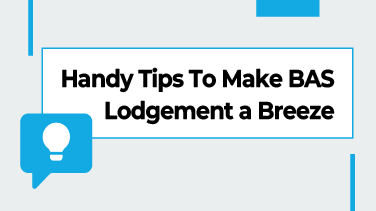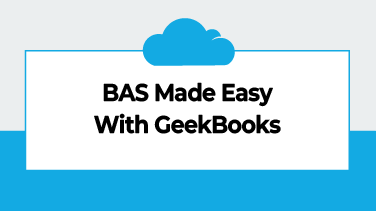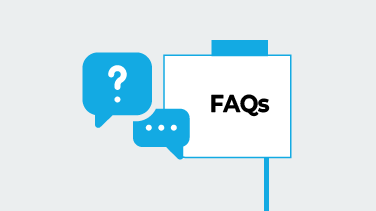Running a small business in Australia is a fantastic adventure.
You’re your own boss, calling the shots and building something amazing. But with great power comes, well, a little bit of paperwork.
One of those important pieces is the small business BAS.
It might sound intimidating, but this blog will break down everything you need to know, from what a BAS is to how to lodge it with ease. So, grab a cup of coffee, and let’s dive in!
What Is BAS and Does My Business Need To Lodge?
BAS stands for Business Activity Statement. Think of the BAS as a financial report card that you submit to the Australian Taxation Office (ATO).
It’s a way for business owners to report and pay taxes like:
- GST (Goods and Services Tax)
- PAYG withholding (tax deducted from your employee’s wages)
- PAYG instalments (tax paid in advance by your business)
- and other taxes
Not all businesses need to lodge a BAS.
If your business’s annual GST turnover is below $75,000, you generally don’t need to register for GST or lodge a BAS.
If your business’s GST turnover is $75,000 or more, you must register for GST and start lodging BAS reports.
What Are the Due Dates?
Understanding your BAS due dates is crucial to staying compliant and avoiding penalties.
The frequency with which you need to lodge your BAS—whether monthly, quarterly, or annually—depends largely on your business’s GST turnover.
- Monthly BAS: If your business’s GST turnover is $20 million or more, you must lodge your BAS monthly. The due date for monthly BAS is the 21st day of the following month. For example, the BAS for July is due on August 21.
- Quarterly BAS: If your business’s GST turnover is less than $20 million but you have chosen to report quarterly, you need to lodge your BAS every three months. The quarterly BAS due dates for the current financial year are:
- Quarter 1 (July – September): October 28
- Quarter 2 (October – December): February 28
- Quarter 3 (January – March): April 28
- Quarter 4 (April – June): July 28
- Annual BAS: If your small business has a GST turnover of $75,000 or more but less than $20 million, you may qualify to lodge your BAS annually. The due date for annual BAS typically aligns with your tax return, usually by October 31, after the financial year ends. However, some conditions may allow for different due dates.
How To Lodge Your Small Business BAS
Lodging your Business Activity Statement (BAS) is simplified through various methods: online via the myGov portal, using BAS accounting software, or through a registered BAS agent.
Below, we outline the process for each method to help you stay compliant and organised.
How to submit your BAS:
- Gather information: Collect all necessary financial documents, including sales records and expense receipts.
- Filling out the form: Log in to the myGov portal or your accounting software, or provide your documents to a registered BAS agent. Fill in your GST, PAYG, and other reportable information, ensuring accuracy.
- Submitting: Review your entries and submit your BAS electronically through the myGov portal, BAS accounting software, or have your BAS agent lodge it on your behalf.
- Making payments: If you owe dues, make a payment directly via the myGov portal, follow the prompts in the accounting software, or consult your BAS agent for payment options.
By selecting the method that best suits your business needs, lodging your BAS can be straightforward and efficient.
What Information Will You Need To Have Before Lodging?
You need several essential records to ensure your BAS is accurate and complete.
Here’s a list of crucial documents and data points:
- Sales and invoices: Keep all sales invoices, receipts, and income records, along with issued invoices showing amounts billed to clients and received invoices for amounts owed to suppliers.
- Expense records: Record every business expense, including bills, receipts, and invoices.
- Bank statements: Keep all business-related bank statements to reconcile transactions.
- Payroll records: Maintain detailed records of wages, superannuation contributions, and PAYG withholding.
- GST details: Track all GST paid and collected, maintaining a summary report that outlines GST from sales and business purchases.
- Petty cash transactions: Record small cash transactions.
Having these records organised and accessible will streamline BAS preparation and submission, ensuring compliance with ATO requirements.
Handy Tips To Make BAS Lodgement a Breeze
Keeping accurate and organised records minimises errors and reduces the time spent crunching numbers when the BAS due dates roll around.
To facilitate this, consider utilising accounting software or apps that can help streamline your BAS lodgement online process.
Two popular accounting tools are MYOB and XERO.
MYOB offers a comprehensive suite of features designed to automate many accounting tasks, such as invoicing, payroll, and GST tracking, making it easier to keep tabs on your financials.
XERO, on the other hand, provides a user-friendly interface with robust functionalities like bank reconciliation, real-time financial reporting, and seamless integration with various third-party apps.
Starting your BAS preparation before the due date can significantly reduce last-minute stress.
Early preparation allows you to gather necessary documents, resolve discrepancies, and seek professional help if needed.
When To Use a BAS Agent
Utilising the services of a BAS agent can be incredibly beneficial for several reasons:
- Navigating complexities: If your business has a complex structure or engages in intricate transactions, a BAS agent can easily navigate these complexities.
- Time and resource management: Limited time or resources for BAS lodgement can make it difficult for business owners to manage their own BAS submissions effectively. Entrusting this task to a qualified BAS agent ensures that your obligations are met without added stress.
- Expert advice: A BAS agent offers expert advice on BAS requirements, keeping you informed and compliant with the latest regulations.
- Peace of mind: Most importantly, using a BAS agent provides peace of mind, knowing that your BAS lodgement is handled professionally and accurately.
BAS Made Easy With GeekBooks
In summary, this blog outlined the essentials for preparing and lodging your BAS for your small business, including critical record-keeping practices and handy tips for a stress-free lodgement process.
Engaging a BAS agent is highly recommended for businesses with complex structures, limited resources, or those seeking expert advice and peace of mind.
Need help with your BAS lodgement? GeekBooks is here to assist you!
Our team of qualified professionals specialises in making BAS filings straightforward and error-free.
Complete our online booking form today or call us on 02 9158 3591 and learn how we can simplify your accounting tasks.
FAQ
What Does BAS Mean in Business?
BAS, or Business Activity Statement, is a form submitted to the Australian Taxation Office (ATO) by registered businesses to report tax obligations like GST, PAYG withholding, and PAYG instalments, ensuring compliance with Australian tax laws.
Do Sole Traders Pay BAS?
Yes, sole traders must pay BAS if registered for GST, particularly those with a GST turnover of $75,000 or more.
Compliance is essential to avoid penalties and ensure smooth business operations.
Can I Lodge BAS Myself?
Yes, you can lodge BAS yourself if you understand the requirements.
The ATO offers online services for this.
If it’s challenging, consider hiring a BAS agent for accuracy and convenience.


